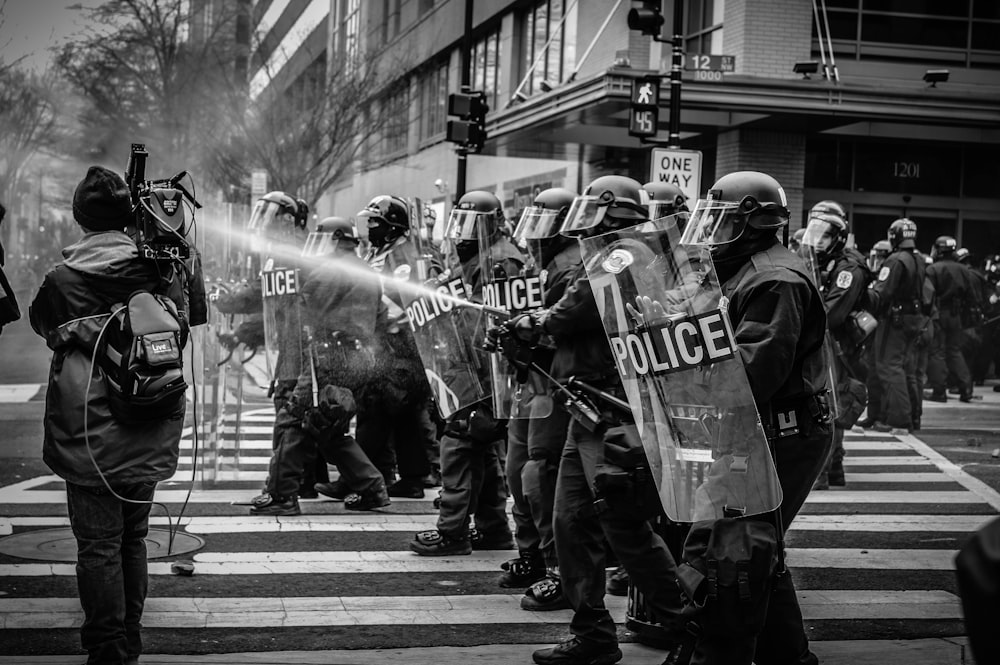A common refrain from trade nerds is that they “wish trade was boring again”.
First, they are lying. Trade nerds [including me] absolutely love it when trade isn’t boring because people actually talk to them and pretend to care about what they have to say. It’s fun to speak to another human!
It is probably more true to say that “it’s better for the world when trade is boring”.
I think we’d all generally agree that Donald Trump declaring daily trade wars on friends and foes alike is a bad thing, if slightly entertaining.
However, I’m not sure it is **always** true that “it’s better for the world when trade is boring”.
Because sometimes, trade being exciting means that governments are actually trying to do useful things.
As a teenager, my first introduction to the WTO and trade in general was via a short documentary about the WTO negotiations in Seattle, included in the DVD edition of Rage Against The Machine’s Battle of Mexico City.
You can see a clip here:
People were really really angry!
And why were they so angry? Because trade negotiators were actually trying to negotiate trade-related stuff that would have an impact on the world.
Or to use a non-WTO example.
Do you remember when half a million Germans took to the streets to protest against sanitary and phytosanitary rules and investor-state dispute settlement? Why? The EU was negotiating a trade deal with the US (TTIP) that would have actually had an impact on the world.
And this year’s, still ongoing, WTO negotiation round in Abu Dhabi? How many people outside of the readership of this newsletter even know it’s happening?
I’m not saying that heated negotiations on whether to extend the moratorium on applying customs duties to cross-border electronic transmissions aren’t important,1 but … they’re not quite Battle of Seattle interesting.
So in the case of the WTO, should we be hoping for riots every time there’s a negotiation round?
No. [Ed: riots are Bad.]
But lots of people getting angry would at least suggest countries are trying to do something substantive.
On that note, I’ll leave you with this visual metaphor for this year’s WTO negotiations[h/t Geraldo Vidigal]:
Win a prize
If you are young, smart, interested in trade and in need of £10,000, this Department for Business and Trade competition may be of interest to you:
We seek entries from those in the first 5 years of a career in academia, industry, or think-tanks, in addition to current students. Entries, comprising a single piece of written work up to 10 pages in length, will be assessed on the basis of their analytical rigour, originality, policy-relevance, and quality of communication.
Submissions will be assessed by a cross-disciplinary panel of experts from inside and outside government, including DBT’s Director of Analysis. The winning entry will receive a cash prize of £10,000, with those shortlisted invited to speak to an audience of analysts and policymakers in the Department.
Investor Protection
Last week the UK the UK joined 9 EU member states, including France, Spain and the Netherlands, in withdrawing from the Energy Charter Treaty (ECT).
The justification, ostensibly, is that the ECT investor-state dispute settlement (ISDS) provisions allowing investors to sue governments that directly or indirectly screw up their investments in the energy sector could get in the way of delivering on the government’s net zero commitments.
I have written about this previously, and have some questions as to how much of this withdrawal is performative vs substantive given the ECT’s sunset clause means:
… all pre-existing investors would still be covered for 20 years. And, presumably, it’s the pre-existing investments you are most worried about from a “phasing out dirty energy” perspective.
But anyhow, the UK exiting is significant.
It does, however, raise some questions about the UK’s **general** approach to ISDS. As in, it’s not particularly coherent.
By my count, since Brexit, the UK has …
Excluded ISDS from its bilateral FTAs with Japan, Australia and New Zealand
Accepted ISDS in the context of CPTPP (not covering all members, some of which the UK already has investment treaties with, but meaning new coverage for Japan and Canada)
Engaged in complicated discussion with India on ISDS in parallel to the FTA negotiations, linked to India voiding its previous bilateral investment treaty with the UK and now trying to get out of the sunset provisions
Half-heartedly tried to work around the issue in the negotiations with the GCC while being pressed by the Gulf countries into including it
¯\_(ツ)_/¯
Chart of the week
And read the thread too.
Best wishes,
Sam






Thanks Sam. I enjoyed the nostalgic reference to the Rage Against the Machine DVD. That very same DVD was also my first encounter with the WTO. Maybe it was a gateway into trade work for more people than one would realise!